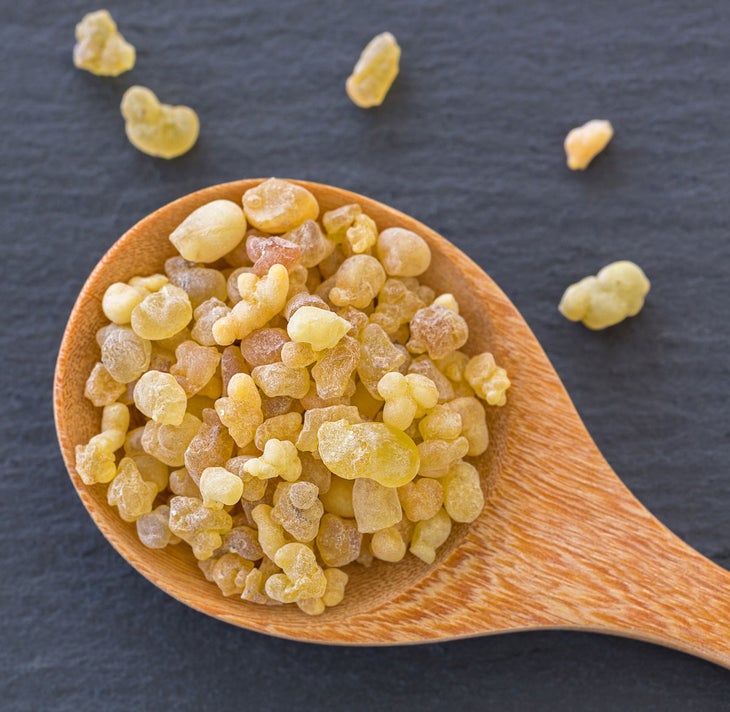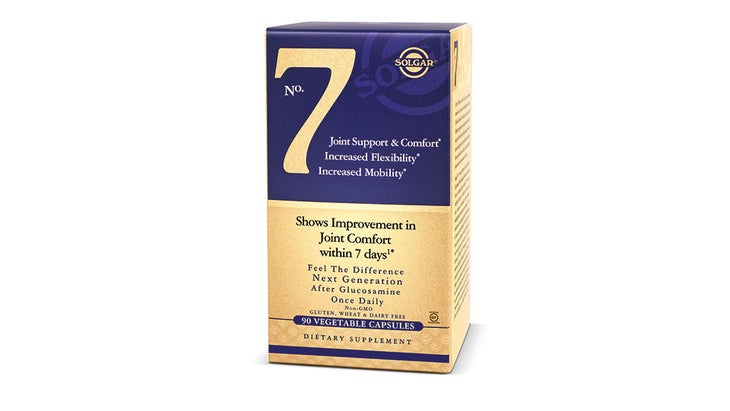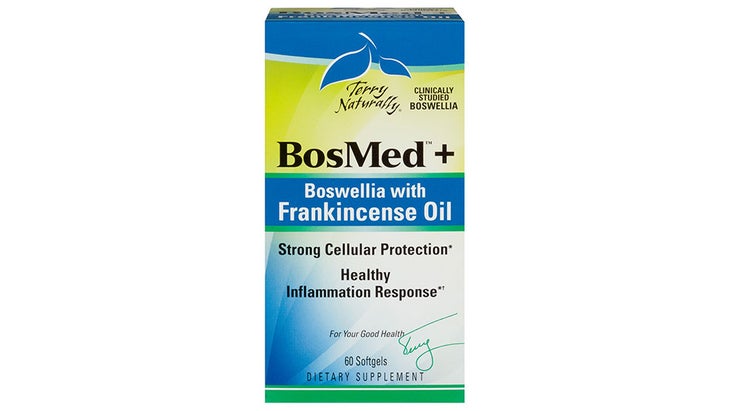Boswellia Benefits for Joint Pain, Inflammation, Asthma & Cancer
You’ve heard of turmeric and its remarkable anti-inflammatory benefits. But did you know that there’s an herb that may be even better at easing pain, reducing inflammation, and protecting against cancer?
Get full access to Outside Learn, our online education hub featuring in-depth nutrition, fitness and adventure courses, and more than 2,000 instructional videos when you sign up for Outside+..

Boswellia, also known as Indian frankincense, comes from the Boswellia serrata tree native to India. It has been used for thousands of years in Ayurveda to treat conditions including arthritis, pain, fever, and heart disease. Other types of boswellia, including Boswellia sacra and Boswellia carteri, have similar effects.
It’s similar to turmeric in mechanisms of action and conditions treated, and together, curcumin and boswellia may have synergistic effects that make them more powerful than using each alone. In one study, a combination of boswellia and turmeric was more effective in reducing pain than the prescription NSAID celecoxib.
Boswellia’s anti-inflammatory benefits come mainly from boswellic acids and terpenes, antioxidant compounds that are also found in citrus fruits, eucalyptus, and other plants. Studies suggest that boswellic acids work by inhibiting the synthesis of a specific proinflammatory enzyme, 5-lipoxygenase (5-LO).
What are the benefits of boswellia?
1. Pain relief from rheumatoid arthritis & osteoarthritis
The anti-inflammatory actions of boswellia have been shown in several studies to ease pain, reduce swelling, and improve mobility in patients with arthritis or osteoarthritis. Research shows a profound effect, including a reduction in arthritis symptoms by 45–67 percent, which is comparable to prescription medications, and a 35 percent reduction in inflammation. It appears to be especially helpful in osteoarthritis of the knee, and several studies have found reductions in knee pain, knee jerking, swelling, and pain while walking in test subjects who took boswellia. Unlike some herbs, which may take weeks to be effective, boswellia works quickly—in one study, boswellia extract reduced pain and improved knee-joint functions within seven days.
2. Reducing inflammation for bowel diseases
Because of its anti-inflammatory action, boswellia may be effective in treating inflammatory bowel diseases, including Crohn’s disease and ulcerative colitis. Studies also suggest that boswellia can improve gastrointestinal health by maintaining immune activity in the lining of the digestive tract and offering antioxidant protection. In one study comparing boswellia extract with an anti-inflammatory prescription drug, the herb performed as well as the drug in managing Crohn’s disease. In other studies, up to 82 percent of ulcerative colitis patients who took boswellia went into remission.
3. Improving asthma symptoms
Frankincense, derived from boswellia, has traditionally been used to treat respiratory system ailments, including coughs, bronchitis, and breathing disorders. And modern studies show that the boswellic acids in frankincense can modulate the inflammatory process that drives asthma, dramatically improving symptoms. In one study of patients with asthma, 70 percent of those who took 300 mg of boswellia three times daily showed significant improvements in breathing and number of attacks. In another study, asthma patients who took a combination of boswellia, curcumin, and licorice root showed a significant decline in levels of inflammatory compounds and markers of oxidative stress.
4. Inhibiting cancer growth
Boswellic acids appear to act in several ways that can inhibit cancer growth. They may prevent changes to DNA and induce apoptosis (cell death) of cancer cells. Other boswellia compounds, called triterpenoids, have demonstrated antitumor properties. A number of cell culture studies show boswellia can:
- Slow even aggressive tumor growth in breast cancer cells
- Suppress pancreatic cancer progression and metastasis
- Inhibit prostate tumor growth
- Stop cancer cell viability and induce bladder cancer cell death
Boswellia Serrata Supplements and Doseages
You’ll find Boswellia serrata extract as a single supplement in capsules, powders, and tinctures. It’s also often included in anti-inflammatory formulas with turmeric (and/or curcumin) and other herbs.
Though recommendations vary, a typical dose is 300 mg, three times a day, or follow the directions on the package. Some experts say that boswellia is safe for children at half the adult dosage. Check with your physician first, or if you’re pregnant or taking other medications. Side effects noted in clinical trials did not occur more commonly than placebo. Some reported side effects include diarrhea, nausea, abdominal pain, and heartburn.

Natural Factors CurcuminRich Whole Body Curcumizer

Solgar No. 7

Terry Naturally BosMed+